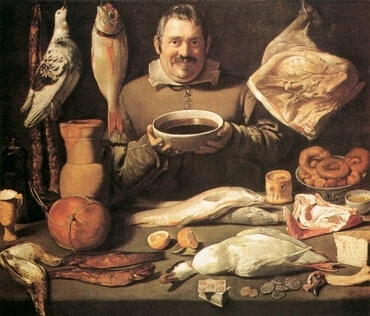1
Interim fames omnem terram vehementer premebat.
2
Consumptisque cibis quos ex Ægypto detulerant, dixit Jacob ad filios suos : Revertimini, et emite nobis pauxillum escarum.
3
Respondit Judas : Denuntiavit nobis vir ille sub attestatione jurisjurandi, dicens : Non videbitis faciem meam, nisi fratrem vestrum minimum adduxeritis vobiscum.
4
Si ergo vis eum mittere nobiscum, pergemus pariter, et ememus tibi necessaria :
5
sin autem non vis, non ibimus : vir enim, ut sæpe diximus, denuntiavit nobis, dicens : Non videbitis faciem meam absque fratre vestro minimo.
6
Dixit eis Israël : In meam hoc fecistis miseriam, ut indicaretis ei et alium habere vos fratrem.
7
At illi responderunt : Interrogavit nos homo per ordinem nostram progeniem : si pater viveret : si haberemus fratrem : et nos respondimus ei consequenter juxta id quod fuerat sciscitatus : numquid scire poteramus quod dicturus esset : Adducite fratrem vestrum vobiscum ?
8
Judas quoque dixit patri suo : Mitte puerum mecum, ut proficiscamur, et possimus vivere : ne moriamur nos et parvuli nostri.
9
Ego suscipio puerum : de manu mea require illum : nisi reduxero, et reddidero eum tibi, ero peccati reus in te omni tempore.
10
Si non intercessisset dilatio, jam vice alter venissemus.
11
Igitur Israël pater eorum dixit ad eos : Si sic necesse est, facite quod vultis : sumite de optimis terræ fructibus in vasis vestris, et deferte viro munera, modicum resinæ, et mellis, et storacis, stactes, et terebinthi, et amygdalarum.
12
Pecuniam quoque duplicem ferte vobiscum : et illam, quam invenistis in sacculis, reportate, ne forte errore factum sit :
13
sed et fratrem vestrum tollite, et ite ad virum.
14
Deus autem meus omnipotens faciat vobis eum placabilem : et remittat vobiscum fratrem vestrum quem tenet, et hunc Benjamin : ego autem quasi orbatus absque liberis ero.
15
Tulerunt ergo viri munera, et pecuniam duplicem, et Benjamin : descenderuntque in Ægyptum, et steterunt coram Joseph.
16
Quos cum ille vidisset et Benjamin simul, præcepit dispensatori domus suæ, dicens : Introduc viros domum, et occide victimas, et instrue convivium : quoniam mecum sunt comesturi meridie.
17
Fecit ille quod sibi fuerat imperatum, et introduxit viros domum.
18
Ibique exterriti, dixerunt mutuo : Propter pecuniam, quam retulimus prius in saccis nostris, introducti sumus : ut devolvat in nos calumniam, et violenter subjiciat servituti et nos, et asinos nostros.
19
Quam ob rem in ipsis foribus accedentes ad dispensatorem domus,
20
locuti sunt : Oramus, domine, ut audias nos. Jam ante descendimus ut emeremus escas :
21
quibus emptis, cum venissemus ad diversorium, aperuimus saccos nostros, et invenimus pecuniam in ore saccorum : quam nunc eodem pondere reportavimus.
22
Sed et aliud attulimus argentum, ut emamus quæ nobis necessaria sunt : non est in nostra conscientia quis posuerit eam in marsupiis nostris.
23
At ille respondit : Pax vobiscum, nolite timere : Deus vester, et Deus patris vestri, dedit vobis thesauros in saccis vestris : nam pecuniam, quam dedistis mihi, probatam ego habeo. Eduxitque ad eos Simeon.
24
Et introductis domum, attulit aquam, et laverunt pedes suos, deditque pabulum asinis eorum.
25
Illi vero parabant munera, donec ingrederetur Joseph meridie : audierant enim quod ibi comesturi essent panem.
26
Igitur ingressus est Joseph domum suam, obtuleruntque ei munera, tenentes in manibus suis : et adoraverunt proni in terram.
27
At ille, clementer resalutatis eis, interrogavit eos, dicens : Salvusne est pater vester senex, de quo dixeratis mihi ? adhuc vivit ?
28
Qui responderunt : Sospes est servus tuus pater noster, adhuc vivit. Et incurvati, adoraverunt eum.
29
Attollens autem Joseph oculos, vidit Benjamin fratrem suum uterinum, et ait : Iste est frater vester parvulus, de quo dixeratis mihi ? Et rursum : Deus, inquit, misereatur tui, fili mi.
30
Festinavitque, quia commota fuerant viscera ejus super fratre suo, et erumpebant lacrimæ : et introiens cubiculum flevit.
31
Rursumque lota facie egressus, continuit se, et ait : Ponite panes.
32
Quibus appositis, seorsum Joseph, et seorsum fratribus, Ægyptiis quoque qui vescebantur simul, seorsum (illicitum est enim Ægyptiis comedere cum Hebræis, et profanum putant hujuscemodi convivium)
33
sederunt coram eo, primogenitus juxta primogenita sua, et minimus juxta ætatem suam. Et mirabantur nimis,
34
sumptis partibus quas ab eo acceperant : majorque pars venit Benjamin, ita ut quinque partibus excederet. Biberuntque et inebriati sunt cum eo.







